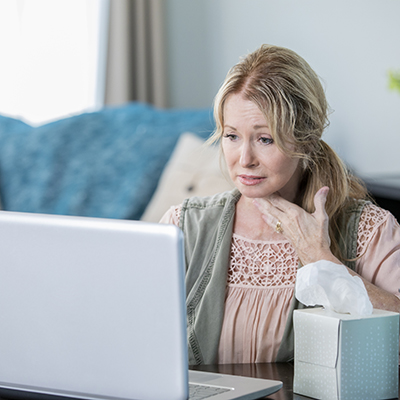Myth vs. Fact: What you need to know to protect yourself from COVID-19
Posted April 09, 2020 by Michael J Tan, MD

New headlines and reports about the novel coronavirus (COVID-19) are infiltrating the Internet, TV, and social media channels daily, if not hourly. Much of this information is vital for our safety and protection against the virus. However, amidst this global pandemic, there are many myths being passed around that could potentially do more harm than good.
Summa Health is getting to the bottom of the most pertinent questions it is hearing to separate the myths from facts.
Myth: COVID-19 can be transmitted through mosquito bites.
Fact: There is no evidence to suggest mosquitos transmit the virus. COVID-19 the disease caused by is a respiratory virus, SARS-CoV2, that is spread primarily through droplets produced when an infected person coughs or sneezes. These droplets can land in mouths or noses of people nearby, or possibly be inhaled.
In addition, it can be transmitted if someone touches an infected person’s hands or face, or shares a drink with him or her. A person also can catch the virus by touching a contaminated surfaces that contain the virus like door knobs, elevator buttons, and high -touch surfaces and then touches his or her eyes, nose, or mouth.
Myth: COVID-19 cannot be transmitted in hot and humid climates.
Fact: There is reason to believe COVID-19 can be transmitted in all areas and climates — hence, a global pandemic. Despite the varying climates across the United States, cases have been confirmed across all 50 states, and COVID-19 is also in the southern hemisphere where it is currently warm.
Myth: There are medicines to help prevent and treat COVID-19.
Fact: The World Health Organization (WHO) states: “While there are measures that can be taken to relieve and treat symptoms of the virus, there are no specific medicines recommended to treat or prevent the virus itself at this time. However, there are treatments under investigation that will be tested through clinical trials.”
Myth: Vaccines for pneumonia can help protect you against COVID-19.
Fact: Vaccines that help protect people against pneumonia, such as pneumococcal vaccine and Haemophilus influenza type B vaccine, will not protect you against COVID-19. These vaccines protect against these specific bacterial infections. Because COVID-19 is new and different, it will need its own vaccine.
Myth: Packages in the mail or getting takeout could infect you.
Fact: It’s okay to receive mail and packages from parts of the world that have reported COVID-19 outbreaks, according to the WHO. Current information states COVID-19 cannot survive for long without a human or animal host. Recent studies suggest the virus can remain viable for 24 hours on cardboard.
In addition, the Centers for Disease Control and Prevention state there is no evidence to suggest COVID-19 is transmitted through food. It’s mainly spread through person-to-person contact.
However, if you’re concerned about the virus being on surfaces or objects you touch, such as packages or takeout containers, you can use an alcohol-based disinfectant to reduce any traces of the virus when you are introducing these containers into your home.
Myth: Hand dryers are effective in killing COVID-19.
Fact: Hand dryers can’t kill the virus, according to the WHO. The organization also states that UV lamps shouldn’t be used to sterilize hands or other areas of the body because the radiation can irritate skin.
Frequent hand washing is one of the best ways to limit the spread of COVID-19. Wash your hands thoroughly with soap for at least 20 seconds and then rinse them with water. The water temperature does not matter; it’s the scrubbing action that is doing the cleaning. Then, make sure to completely dry your hands.
If a sink is not available, an alcohol-based hand sanitizer is the next best thing.
Myth: Home remedies, such as eating garlic, taking vitamin C or drinking water frequently, help to prevent the virus.
Fact: There’s no evidence to support eating garlic, sipping water every 15 minutes or taking vitamin C will protect you from COVID-19. The best ways to prevent transmission is to practice social distancing, avoid crowds, stay 6 feet away from others, thoroughly and frequently wash your hands, and disinfect surfaces.
However, it is a good idea to eat these foods and drink plenty of water to keep your body healthy and hydrated. Garlic is a healthy food with some antimicrobial properties and vitamin C can help boost your immune system.
Helpful links with up-to-date information:
Our website: www.summahealth.org/coronavirus
Ohio Department of Health: coronavirus.ohio.gov
Centers for Disease Control: www.cdc.gov/coronavirus/2019-ncov/index.html
World Health Organization: www.who.int/emergencies/diseases/novel-coronavirus-2019/advice-for-public/myth-busters
About the Author
Vitality eNews Sign Up
Receive the Summa Health eNewsletter for the latest health tips, advice and updates.

